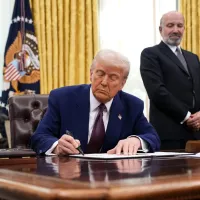Saudi Arabia is poised to be awarded the 2034 FIFA World Cup hosting rights in a virtually uncontested bid. The decision marks the culmination of Saudi Arabia’s Vision 2030 initiative.
Securing the World Cup represents a key achievement for Saudi Arabia’s Vision 2030, a broad plan to enhance the country’s global influence through strategic investments in sports and other sectors. Launched in 2016, the plan aims to diversify the Saudi economy and raise its profile internationally.
While the World Cup bid was originally intended for 2030, the Saudi’s acquisition of the 2034 tournament represents a major step in their plan.
However, for the 2034 tournament, Saudi Arabia was the only one bidder for the selection and was widely anticipated. The first part of the vote will ratify the joint 2030 bid from Spain, Portugal, and Morocco, alongside a South American bid from Argentina, Uruguay, and Paraguay. This lack of genuine competition has sparked controversy and criticism.

Controversy for a ‘good relationship’
This mirrors the concerns surrounding previous World Cup host selections, particularly Qatar in 2022. According The Washington Post, FIFA President Gianni Infantino‘s close ties to Saudi Crown Prince Mohammed Bin Salman have further fueled criticism.

see also
How will the 2030 World Cup work? FIFA confirms it will take place in Morocco, Spain, Portugal, and South America
FIFA’s decision to combine the bidding processes for the 2030 and 2034 World Cups significantly reduced the timeframe for potential bidders to submit proposals. This effectively eliminated any meaningful competition for the 2034 tournament, with Australia withdrawing its bid due to the short timeframe and cost involved. Norway’s football association has voiced its opposition to the decision, but is likely to be ignored by FIFA.
FIFA’s relationship with Saudi Arabia
The decision to award the 2034 World Cup to Saudi Arabia follows a similar pattern to the selection of Qatar. This highlights FIFA’s close relationship with countries possessing significant financial resources, despite concerns about human rights. Saudi Arabia’s extensive investments in sports, both domestically and internationally, have significantly increased its influence within the global sporting landscape.

see also
Gianni Infantino's FIFA to be sued over his decision to host the 2034 World Cup in Saudi Arabia
Several key details regarding the 2034 World Cup remain unclear. Given Qatar 2022 was held in winter to mitigate the heat, the scheduling of the 2034 tournament is yet to be confirmed.
The Saudi Arabian bid also includes the construction of 11 new stadiums, some in a city (NEOM) that is not yet built, further highlighting the scale of the project and the potential for future challenges. However, one thing is clear: The 48-team tournament will undoubtedly prove lucrative for FIFA.














